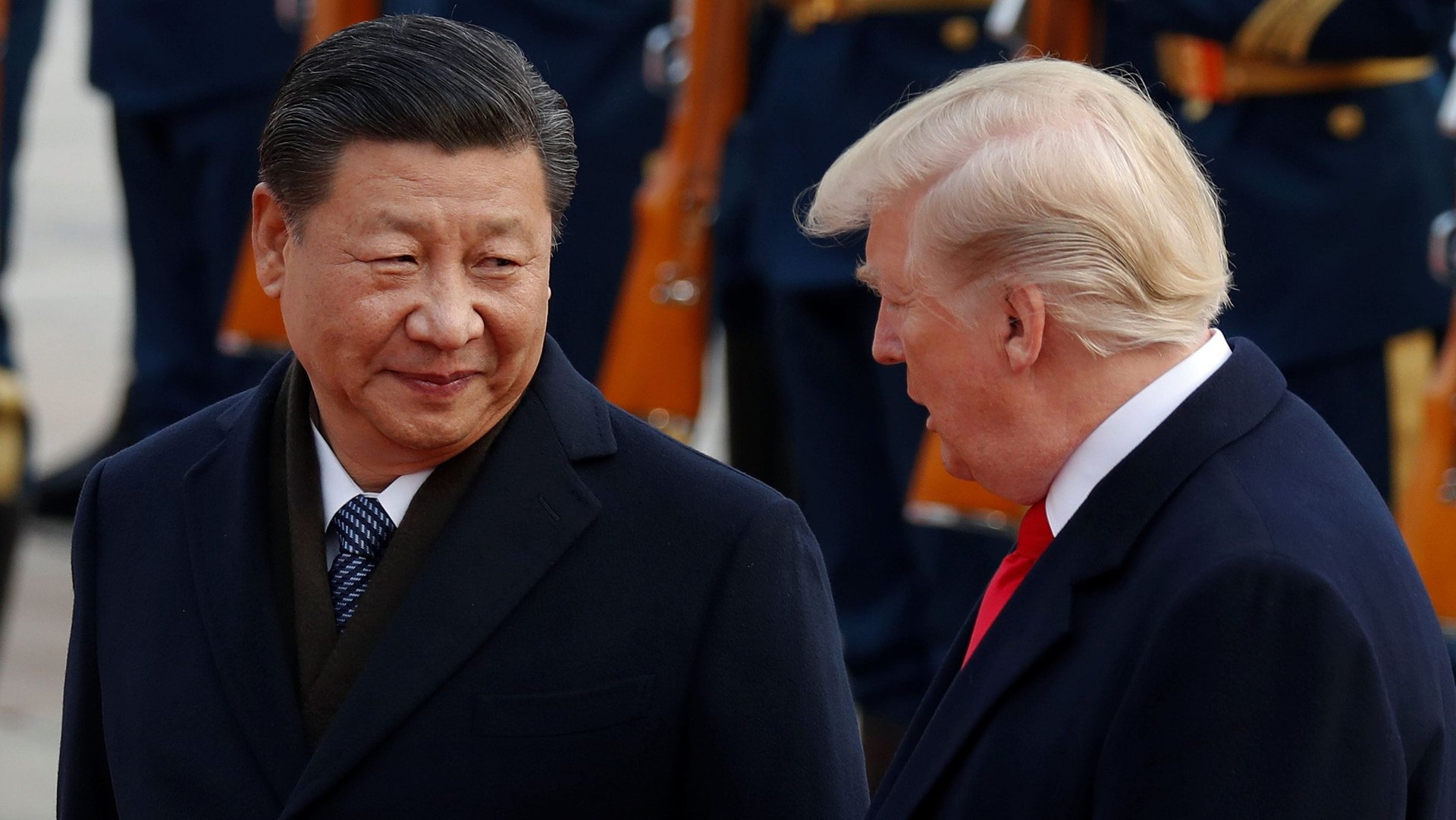The White House says China tariffs don’t work—so it’s proposing even more tariffs
Frustrated with Beijing’s stubbornness on trade, the US’s top trade negotiator might pile even more tariffs on $200 billion of Chinese products.


Frustrated with Beijing’s stubbornness on trade, the US’s top trade negotiator might pile even more tariffs on $200 billion of Chinese products.
At the urging of Donald Trump, US trade representative Robert Lighthizer will “consider increasing” taxes on $200 billion in Chinese goods. Taxes of 10% were first proposed on July 10. Less than a month later, they could be raised to 25%, the USTR said in a statement Wednesday, because China hasn’t reacted the way it expected to the first tariffs.
The increase is “intended to provide the Administration with additional options to encourage China to change its harmful policies and behavior and adopt policies that will lead to fairer markets and prosperity for all of our citizens,” the USTR said.
The Trump administration initially proposed 10% tariffs on Chinese goods in July “to get them to change their behavior,” explained a frustrated senior US government official on a call with press this afternoon. But Beijing did not change; instead, it threatened the US with retaliatory tariffs of its own, which the US official described as “obstreperous behavior.”
Can new tariffs force Beijing to bend?
There’s little indication that Beijing will be cowed by tariffs. Previous administrations, and other Western governments, have spent years grappling unsuccessfully with the problem of China’s subsidies for state-run industries, theft of intellectual property, and onerous demands on foreign investors, as the country’s economic growth made it an attractive market.
The Wall Street Journal first reported the latest proposed tariff hike. In response, a Chinese government official called the threat of a tariff increase ”blackmail” in a Beijing press conference.
The Trans-Pacific Partnership, a multi-lateral trade agreement, was aimed at curbing China’s influence. Trump, whose advisors include a pool of relatively inexperienced China hawks, jettisoned the deal immediately after taking office. The US government has since tried to “talk to [Beijing] and urged them to change, and open up their market, all they’ve done is throw up even more tariffs,” a second White House official said on today’s call. The administration is now trying to figure out “what are the proper tools to try to get China to change its behavior,” he said.
Republican allies, US CEOs, and the US Chamber of Commerce have warned that tariffs on Chinese goods could hurt US consumers and kill US jobs. Some economists maintain that today’s proposed increase makes little sense. “There is no economic rationale for this,” said Edward Goldberg, an economics professor at NewYork University. China is GM’s largest market, he noted, and a major market for Apple and Starbucks, companies that could be targeted in retaliation.
“Raising tariffs on Chinese goods is escalating a bad situation to worse,” said Nathan Nascimento, the executive vice president of Freedom Partners, the Koch-backed think tank. “We shouldn’t accelerate a ‘tit-for-tat’ trade war that will turn upside down the significant economic progress the Trump administration has made in the past two years.”
In taking on Beijing, the Trump administration goes head-to-head with the wealthiest, most powerful Chinese Communist Party government in history. Unlike Trump, Chinese president Xi Jinping doesn’t have to worry about whether the tariffs he imposes are unpopular with voters—because there are no free elections in China. And as the head of an authoritarian government, Xi can also pick the industries that will take a hit from US tariffs, without worrying too much about losing deep-pocketed political donors.
Trump’s double-down approach to Beijing echoes his deal-making style in the private sector; as a developer, he threatened lawsuits and punitive action to competitors and suppliers. But that strategy is not likely to succeed with Beijing, China experts said.
Beijing is “very unlikely to respond to this approach,” said Christoper Balding, an economist and former professor at Peking University, “but they haven’t responded historically to a variety of approaches.” China doesn’t have any history of “good faith negotiation to fall back on.
“In a perverted way,” he added, the Trump administration and Beijing “deserve each other.”